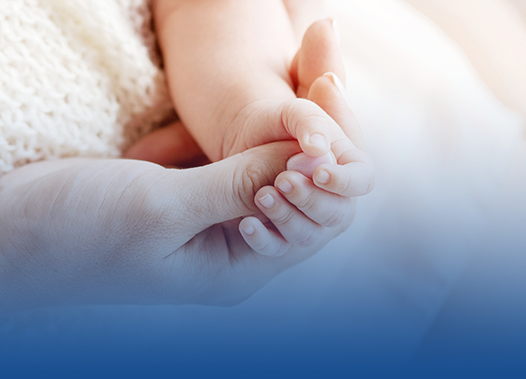Patient Education
3rd trimester pregnancy: What to expect?

The third trimester of pregnancy can be tiring and uncomfortable. Here's help relieving symptoms — and anxiety — as your due date approaches.
The third trimester of pregnancy can be physically and emotionally challenging. Your baby's size and position might make it hard for you to get comfortable. You might be tired of pregnancy and eager to move on to the next stage. If you've been gearing up for your due date, you might be disappointed if it comes and goes uneventfully.
Your body
As your pregnancy progresses, your baby's movements will become more obvious. These exciting sensations are often accompanied by increasing discomfort and other signs and symptoms, including:
- Braxton Hicks contractions. You might feel these mild, irregular contractions as a slight tightness in your abdomen. These contractions also tend to occur more often and become stronger as you approach your due date. Contact your health care provider if the contractions become regular and steadily increase in strength.
- Backaches. Pregnancy hormones relax the connective tissue that holds your bones in place, especially in the pelvic area. These changes can be tough on your back, and often result in discomfort during the third trimester of pregnancy. When you sit, choose chairs with good back support. Get regular exercise. Wear low-heeled — but not flat — shoes with good arch support. If you have severe or persistent pain, contact your health care provider.
- Shortness of breath. You might get winded easily. Practice good posture to give your lungs more room to expand.
- Heartburn. Pregnancy hormones relax the valve between your stomach and esophagus. This can allow stomach acid to reflux into your esophagus and cause heartburn. To prevent heartburn, eat small, frequent meals. Also, avoid fried foods, citrus fruits, chocolate, and spicy or fried foods.
- Spider veins, varicose veins and haemorrhoids. Increased blood circulation might cause tiny red-purplish veins (spider veins) to appear on your face, neck and arms. Redness typically fades after delivery. You might also notice swollen veins (varicose veins) on your legs. Painful, itchy varicose veins in your rectal area (haemorrhoids) may also occur. To ease swelling, exercise and elevate your legs frequently, include plenty of Fiber in your diet and drink lots of fluids. For haemorrhoid relief, soak in a warm tub or apply witch hazel pads to the area.
Frequent urination. As your baby moves deeper into your pelvis, you'll feel more pressure on your bladder. You might find yourself urinating more often. This extra pressure might also cause you to leak urine — especially when you laugh, cough, sneeze, bend or lift. If this is a problem, consider using panty liners. If you think you might be leaking amniotic fluid, contact your health care provider.
Your emotions
As anticipation grows, fears about childbirth might become more persistent. How much will it hurt? How long will it last? How will I cope? If you haven't done so already, consider taking childbirth classes. You'll learn what to expect — and meet others who share your excitement and concerns. Talk with others who've had positive birth experiences and ask your health care provider about options for pain relief.
Prenatal care
During the third trimester, your health care provider might ask you to come in for more frequent checkups — perhaps every two weeks beginning at week 32 and every week beginning at week 36.
Like previous visits, your health care provider will check your weight and blood pressure and ask about any signs or symptoms you're experiencing. In some cases, virtual prenatal care may be an option if you don't have certain high-risk conditions. If you and your health care provider opt for virtual prenatal visits, ask if there are any tools that might be helpful to have at home, such as a blood pressure monitor. To make the most of any virtual visits, prepare a list of questions ahead of time and take detailed notes.
You will also need screening tests for various conditions, including:
- Gestational diabetes. This is a type of diabetes that sometimes develops during pregnancy. Prompt treatment and healthy lifestyle choices can help you manage your blood sugar level and deliver a healthy baby.
- Iron deficiency anaemia. Iron deficiency anaemia occurs when you don't have enough healthy red blood cells to carry adequate oxygen to your body's tissues. Anaemia might cause you to feel very tired. To treat anaemia, you might need to take iron supplements.
- Group B strep. Group B strep is a type of bacteria that can live in your vagina or rectum. It can cause a serious infection for your baby if there is exposure during birth. If you test positive for group B strep, your health care provider will recommend antibiotics while you're in labor.
Your health care provider will also check your baby's size and heart rate. Near the end of your pregnancy, your health care provider will also check your baby's position and ask about your baby's movements. He or she might also ask about your preferences regarding labor and pain management as you get ready for delivery. If you have specific preferences for labor and birth — such as labouring in water or avoiding medication — define your wishes in a birth plan. Review the plan with your health care provider but keep in mind that pregnancy problems might cause plans to change.
As your due date approaches, keep asking questions. Knowing what to expect can help you have the most positive birth experience.